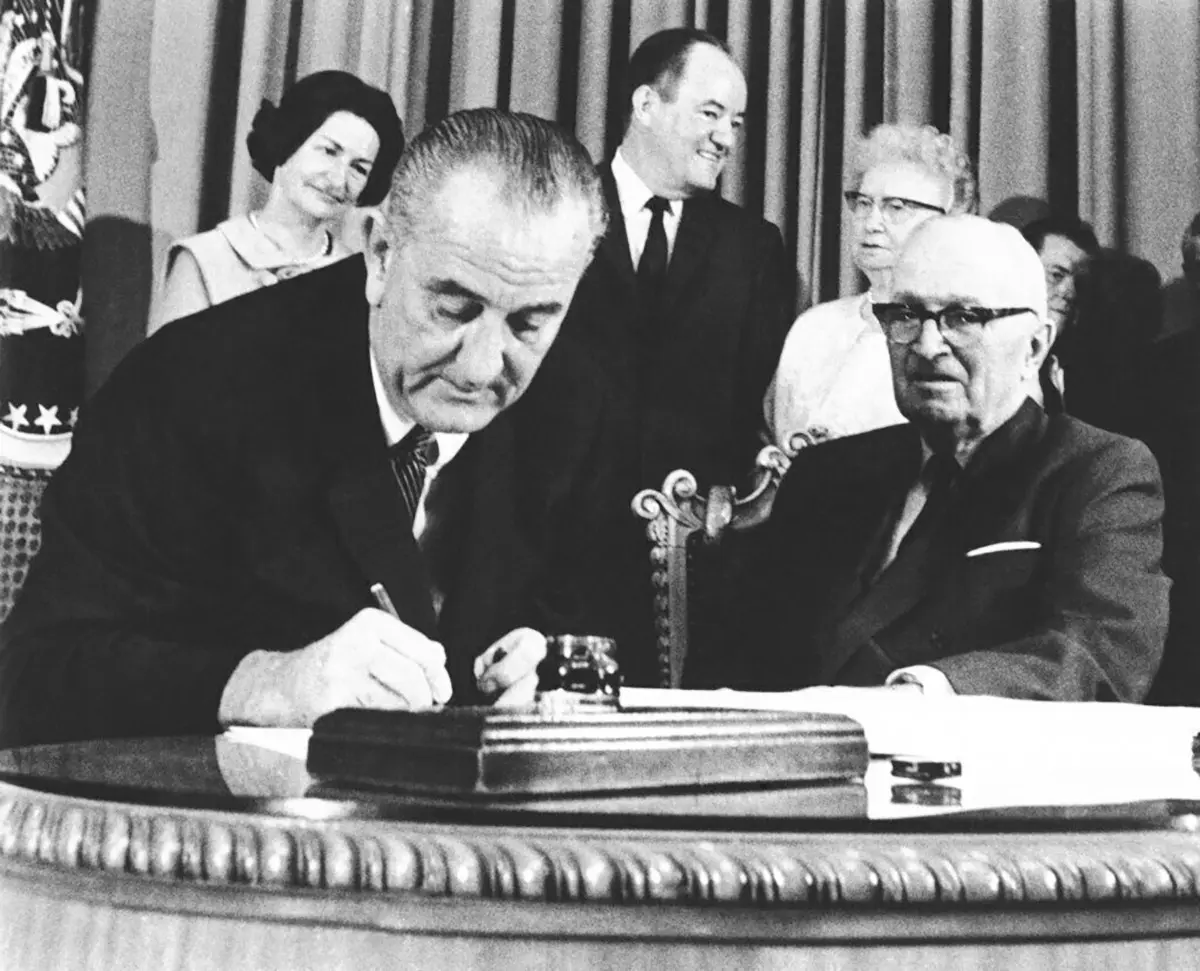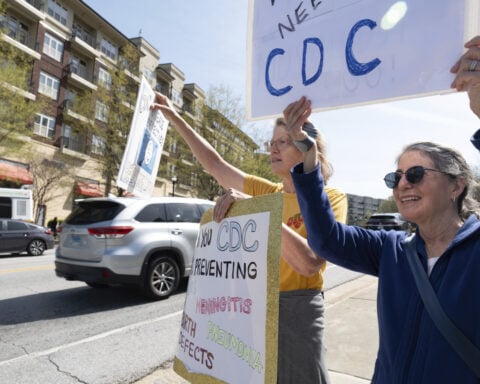ATLANTA (AP) — The Supreme Court's pending Idaho abortion ruling may hinge on how federal spending power might protect doctors against a state's criminal code. For guidance, the justices can look to the very beginning of Medicare in the 1960s, when the promise of federal funding finally persuaded hospitals in the Jim Crow South to desegregate.
In oral arguments for Idaho v. United States last month, Justices Samuel Alito, Clarence Thomas and Neil Gorsuch raised questions about the Biden administration's power to pull Medicare money from hospitals whose doctors won't perform emergency abortions for fear of being prosecuted.
Idaho law currently threatens doctors with prison if prosecutors challenge their medical determination that an abortion was necessary to save a woman's life. Idaho also criminalizes abortions to preserve a woman's bodily functions, contrary to federal requirements for emergency care.
“How can you impose restrictions on what Idaho can criminalize simply because hospitals in Idaho have chosen to participate in Medicare?” asked Alito, who wrote the decision overturning Roe v. Wade. “I don’t understand how — how the theory works."
Solicitor General Elizabeth Prelogar countered that Idaho wants its hospitals to be able to accept Medicare money without federal conditions — like emergency abortion care in certain cases — “that are attached to those funds as an essential part of the bargain. And there is no precedent to support that outcome.”
In fact, using Medicare to impose federal will over states with contrary criminal codes is as old as the program itself. As Medicare prepared to begin paying for the care of elderly patients in July 1966, President Lyndon B. Johnson used the offer of massive federal spending as a tool to finally end the most glaring racial discrimination in hospitals nationwide. It remains “one the most prominent and powerful cases of linking federal funding to other policy goals,” said University of Wisconsin professor Tom Oliver, an expert on health care policy changes.
Similarly, today's “federal use of power is indirect and does not directly override state criminal statutes — it only makes compliance with a complete ban on abortions, even in emergencies threatening the life of the mother, very expensive for hospitals,” Oliver said.
Before Medicare money began flowing, despite passage of the 1964 Civil Rights Act and federal court rulings requiring desegregation, hospitals across the South were still conforming to criminal codes long used to enforce racial discrimination.
Black doctors were denied privileges at most hospitals. Black patients had to use segregated ambulances, wards, bathrooms and even blood supplies. Black people were turned away from emergency rooms reserved for white patients, leading to higher death rates in supposedly “separate but equal” facilities, according to Philip Lee, a Johnson administration official who helped implement Medicare's rollout.
In Atlanta, only the public Grady Hospital treated both races but in separate wings known as the two Gradys. Even there, Black childbirths could only be scheduled on Wednesdays, according to Xernona Clayton, an aide to the Rev. Martin Luther King Jr.
King's cousin-in-law, Dr. Roy Bell, eventually won a 1962 federal lawsuit seeking to end segregation in Atlanta's hospitals, but actual practice lagged behind federal law.
President Johnson was impatient for change and needed more grassroots support as Congress considered the Medicare and Medicaid Act. His aides urged Atlanta’s Black doctors to make some noise, and they did: Clayton brought them to lobby Congress, and they scored a White House visit.
That pressure reverberated back home: On June 1, 1965, one month before Johnson signed the act, Grady's superintendent announced that the entire hospital would operate “on a non-racial basis, effective today.”
Grady was ahead of the curve. By March 1966, four months before the money started flowing, fewer than half the nation's hospitals — and less than a quarter of them in the South — met federal standards outlawing racial discrimination, Lee wrote in 2015 in the Journal of the American Society on Aging.
Hospital inspections by Lee and other federal officials, more litigation and a come-to-Johnson meeting of health care executives at the White House led 95% of the 7,000 hospitals nationwide to comply within six months, enabling Johnson to declare that “there will be no second-class patients in our health-care institutions” nationwide, Lee wrote.
This fundamental principle of American federalism has extended to many other areas: States have updated antidiscrimination practices to qualify for education money and raised the legal drinking age to 21 to get highway funding, for example.
“The feds are saying, here’s a bunch of money — if you want it, abide by our conditions. If you don’t, don’t take it. It’s as simple as that,” said Eric Segall, a constitutional law professor at Georgia State University. “No one who cares about the text and history of the Constitution” would seriously argue that federal spending power can’t be used as leverage this way, he argued.
But this federal power was challenged in a 2012 ruling against the Affordable Care Act, which initially would have withdrawn states from Medicaid if they declined federal funding to expand the program. Chief Justice John Roberts’ opinion held that this aspect of “Obamacare” amounted to unconstitutional coercion. Most states have volunteered to expand since then.

 Trump has begun another trade war. Here's a timeline of how we got here
Trump has begun another trade war. Here's a timeline of how we got here
 Canada's leader laments lost friendship with US in town that sheltered stranded Americans after 9/11
Canada's leader laments lost friendship with US in town that sheltered stranded Americans after 9/11
 Chinese EV giant BYD's fourth-quarter profit leaps 73%
Chinese EV giant BYD's fourth-quarter profit leaps 73%
 You're an American in another land? Prepare to talk about the why and how of Trump 2.0
You're an American in another land? Prepare to talk about the why and how of Trump 2.0
 Chalk talk: Star power, top teams and No. 5 seeds headline the women's March Madness Sweet 16
Chalk talk: Star power, top teams and No. 5 seeds headline the women's March Madness Sweet 16
 Purdue returns to Sweet 16 with 76-62 win over McNeese in March Madness
Purdue returns to Sweet 16 with 76-62 win over McNeese in March Madness








